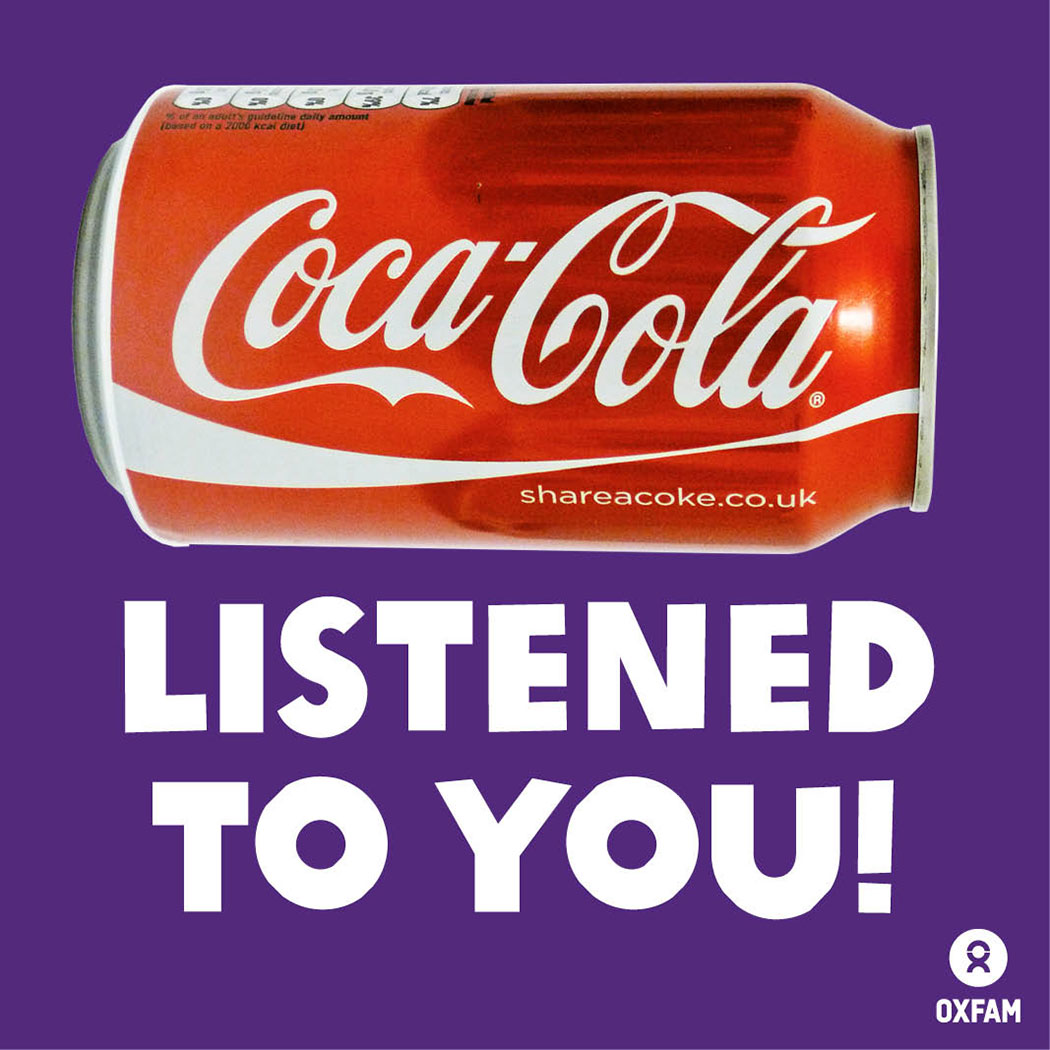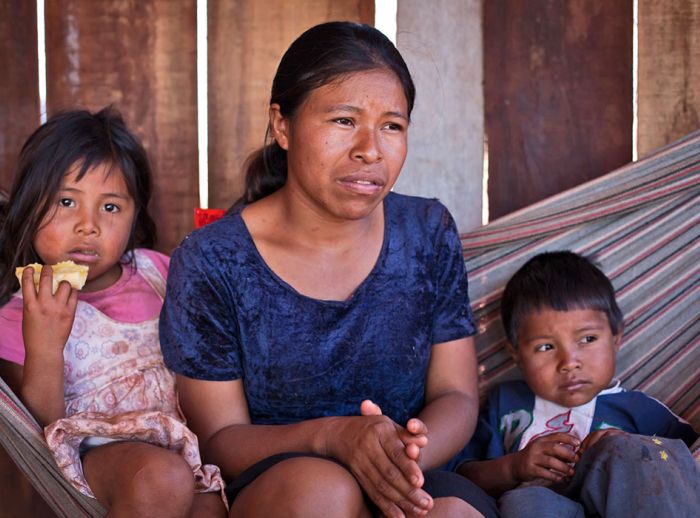- 3 min read
- Published: 8th November 2013
You Spoke. Coca-Cola listened.
What does it take to make a global sugar giant promise to improve its policies on land? You. And 192,000 others too.
A month ago, we launched the second action of our Behind the Brands campaign asking three of the biggest companies in the sugar industry – Coca-Cola, PepsiCo and Associated British Foods – to commit to make sure their sugar doesn’t lead to land grabs.
In just a few weeks tens of thousands of you took action – adding your name to the petition as well as sending messages and photos to the companies to get their attention.
And the result? It’s working! With almost 200,000 of you putting your names behind the campaign, Coca-Cola, the world’s largest purchaser of sugar, has done what you asked – commit to “zero tolerance” for land grabs.

Coke is the first of the ‘Big 3’ to agree to do more to respect communities’ land rights throughout their supply chain – and these moves are happening because of the pressure you applied.
Coca-Cola has said it will do sweeping social and environmental assessments across its supply chains beginning with Colombia, Guatemala and Brazil, then moving on to India, South Africa and other countries, and that it will publicly reveal its biggest sugarcane suppliers.
“Today one of the biggest companies in the world stood up to take greater responsibility for the impacts of its operations,” said Jim Clarken, Oxfam Ireland Chief Executive. “Coca-Cola has taken an important step to show its customers and the communities it relies upon that it aims to be a part of the solution to land grabs. This will resonate throughout the industry.
“The public response to the campaign has been tremendous. This commitment is further evidence that no company is too big to listen to its customers. The biggest food giants in the world are changing how they operate because consumers are demanding it.”
We’ll be closely tracking Coca-Cola to make sure they follow through on their promises. In particular we will continue to advocate for appropriate resolution for the communities in Brazil and Cambodia who continue to struggle to regain the rights to their land.
The time is now.
Edilza Duarte (24) is a Guaraní-Kaiowá mother of two, living in Ponta Porã, Mato Grosso do Sul. Her community's land, Jatayvary, was taken from them 40 years ago. Now it's all covered in sugar cane.

Above: Edilza Duarte, her daughter Stephanie and her son Jason are among the Guarani Kaiowá people who live at Jatayvary Indigenous Land Ponta Porã in Brazil. She says that the sugar plantations have put an end to her culture by clearing the forest and spreading 'poison' (the chemicals sprayed on the sugar plantations). Tatiana Cardeal/Oxfam
"They should stop doing this. They have damaged our lives enough. That's why we need our land back; so we can plant and eat. We want our land back."
Land grabs like this are the sugar industry's bitter secret – and this is not just happening in Brazil. In countries like Cambodia and around the world, families are facing the same fight for their land.
Now is the moment.
Now that Coca-Cola (which sells over 20,000 drinks every second across the world) has committed to make sure the sugar in its products don’t lead to land grabs, Pepsi and Associated British Foods have no excuses to keep lagging behind.
And with Pepsi’s shareholder filing deadline is coming up, now’s the moment to start increasing the pressure on them specifically. We need you to blast their inboxes with messages, telling them to keep up with Coca-Cola and commit to zero tolerance for land grabs.
Over to you, Pepsi and Associated British Foods.
Mary Quinn is Oxfam Ireland’s Campaigns and Outreach Executive.
